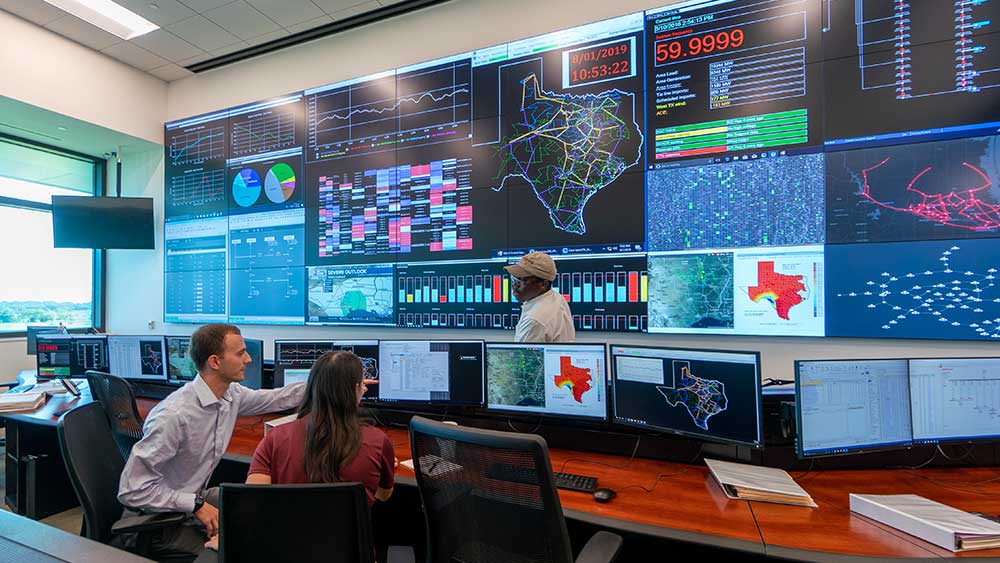
What is the Infrastructure Industry?
Engineers are needed to design the built and digital infrastructure that makes our modern society advance and expand. Whether you want to work as a civil engineer building dams or develop sensors and automation technology for the manufacturing industry, many pathways lead to infrastructure careers.
Majors that Could Lead to Infrastructure Careers
Students interested in infrastructure careers could start their career paths through several majors offered by the Texas A&M University College of Engineering.
See below for a list of some of our majors that could lead to an infrastructure career.
- Aerospace engineering: Within the infrastructure career field, aerospace engineering expertise is heavily needed in areas including procurement, warehousing, materials management, supply planning and logistics support to aerospace manufacturing, and maintenance and support.
- Architectural engineering: The infrastructure industry is rethinking how to design and operate built environments to balance the environmental and economic needs of highly integrated facilities. Architectural engineers are expected to provide reliable, sustainable and resilient engineering solutions that improve the future human condition.
- Civil engineering: Civil engineers often work to implement mechanics into the design of large structures fundamental to basic living, such as buildings, bridges, roadways, dams and tunnels. Civil engineers work closely with architects, construction managers, other engineers and communities to develop and maintain sustainable infrastructure systems that meet society’s needs.
- Computer engineering: Within the infrastructure career field, expertise in computer engineering is heavily needed in topics such as smart buildings, structural health monitoring, automation and sensor networks.
- Data engineering: Data engineers can analyze large-scale datasets from multiple sources, such as sensors, to develop accurate prediction models for risk mitigation, maintenance schedules, and return on investment.
- Electrical engineering: Within the infrastructure career field, expertise in electrical engineering is heavily needed in topics such as hardware development for smart buildings, structural health monitoring, automation and sensor networks.
- Electronic systems engineering technology: Employers in infrastructure commonly look for engineers from this major who can help understand cellular technologies and help calculate and optimize cell coverage. Other common responsibilities within engineering systems engineering technology include communication networks used in the smart grid and remote monitoring of transportation systems infrastructure (railroads, highways).
- Environmental engineering: Environmental engineers design systems to provide potable water to communities, treat domestic and industrial wastewater, manage and clean up hazardous waste, and control air pollution.
- Industrial and systems engineering: Industrial engineers models and solutions to solve problems related to infrastructure life cycle, economic analysis, capital investment priorities, and risk mitigation.
- Industrial distribution: Industrial distribution is commonly used to help with the design, sales and service of smart building products such as lighting, monitoring, automation, sensor and network equipment.
- Manufacturing and mechanical engineering technology: Within the infrastructure career field, expertise in manufacturing and mechanical engineering technology is heavily needed in topics such as construction, mechanical equipment, control and automation, heating, ventilation and air conditioning systems.
- Materials science and engineering: From new cements that minimize carbon dioxide production, to smart materials that sense damage before failure, to coatings to minimize corrosion, material science engineers play a robust role in making innovative and resilient infrastructure.
- Mechanical engineering: Within the infrastructure career field, expertise in mechanical engineering is heavily needed in topics such as design; maintenance; and process activities related to roadways, utilities and wastewater treatment. Additionally, urban planning and logistical analysis are two areas in which mechanical engineers can use their skills.
- Multidisciplinary engineering technology: Within the infrastructure career field, expertise in multidisciplinary engineering technology is heavily needed in topics such as smart buildings and automation.
- Ocean engineering: Ocean engineers gain infrastructure experience via the design and creation of infrastructure on and beneath seafloor for undersea fiber optic cables, electrical transmission cables, and subsea pipelines and umbilicals. They also enter the industry for dredging of ship channels; construction of islands and wetlands for habitat; maintenance of coastal protection systems, ports and marinas; maintenance of river waterways for barge and ship traffic; maintenance of intracoastal waterways along Atlantic and Gulf coasts; and undersea pipelines and cables.